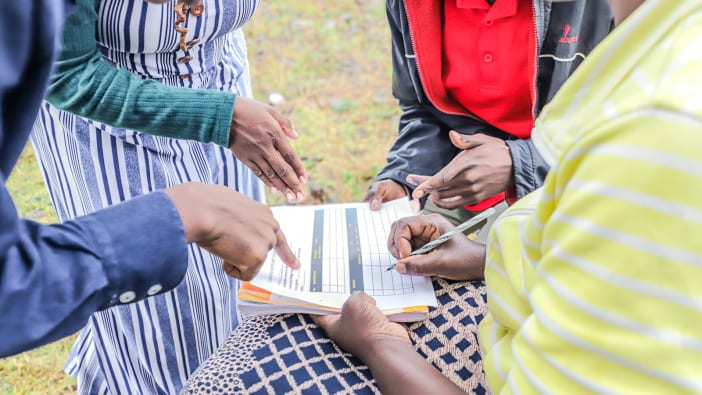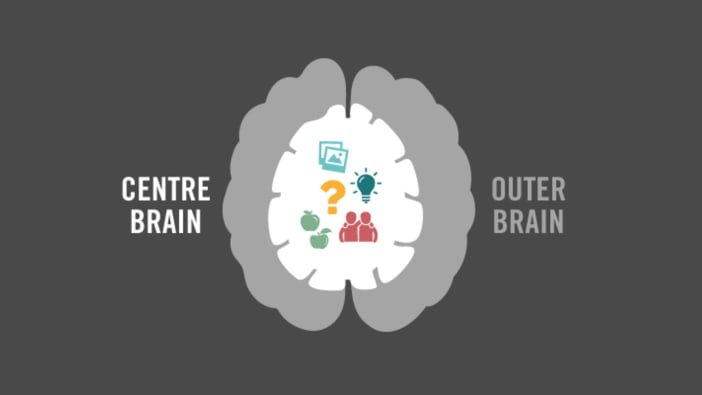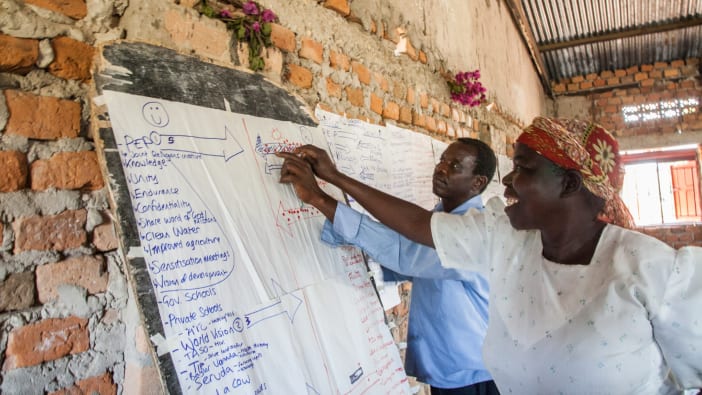Community Viewpoint
by Boureima Kabre.
It is essenial when beginning a new community project to have the full involvement of all the layers of society which make up this community. Each society has its own particular knowledge and ability which enables it to function, however poor its members may be.
Here in GRAAP (Groupe de Recherche et d’Appui a l’Auto-promotion Paysanne), we have developed a process to help allow all groups within a society to express their views, including women and children.
The structure
Each neighbourhood area is represented by a delegation which consists of members of all the social groups – including leaders, adults (both men and women) and young people. These are then formed into sub-groups as follows…
- Leaders’ group
- Men’s group
- Women’s group
- Girls’ group
- Boys’ group
Sometimes more groups may be necessary to include minority groups such as tribal groups, refugees, disabled people or migrant workers. In order to get a balanced result it is helpful to make sure that numbers in each group reflect the actual numbers in the population.
Areas of concern
Each of these sub-groups chooses a spokesperson and an organiser to lead the discussions. The same subject is discussed by all the sub-groups, who make a list of all their ideas and rank them in order of importance. Their three main concerns are then brought to the General Assembly of all sub-groups. The reporters present the three priorities selected by their sub-group, using everyday symbols to represent these (for example: a twig to represent timber, a shoe to represent transport, beans to represent seeds).
Priorities
When all the sub-groups have put forward their views, all delegates are able to decide on their overall priorities as a community. Each person takes the same number of pebbles (this can be based on the number of priorities listed, but between 5 and 10 is a good number). They place their pebbles alongside the symbols representing their own priorities. At the end of the session, people who are not members of the subgroups add up the pebbles. By using this method, the views of accepted leaders and the issues they see as priorities do not automatically get pushed forward. The views of each sub-group can be expressed and heard by all sections of the community, ensuring that women and young people have the opportunity to share their points of view.
Priorities receiving most votes (pebbles) are thus seen to be the main priorities for most of the community, and discussion can move on to how to improve and tackle these priorities.
When to keep quiet
I have found that the best method of leading discussions is not to express your own opinions and knowledge, but instead to enable people to discover the situation for themselves and then think about it and act accordingly. This can be achieved by using the art of questioning skillfully, just as Jesus did (Luke 7:36-43). Sometimes, however, there are difficult or embarrassing situations which people will avoid tackling, and there may be no alternative but – with sensitivity – to express our opinions and encourage action (Matthew 12:9-13, Luke 14:1-6). We should not hesitate to share the truth if necessary, as we are the salt and light of the world (Matthew 5:13-16).
Boureima Kabre is a facilitator working with GRAAP. His address is BP 143, Koujiela, Burkina Faso, West Africa.









